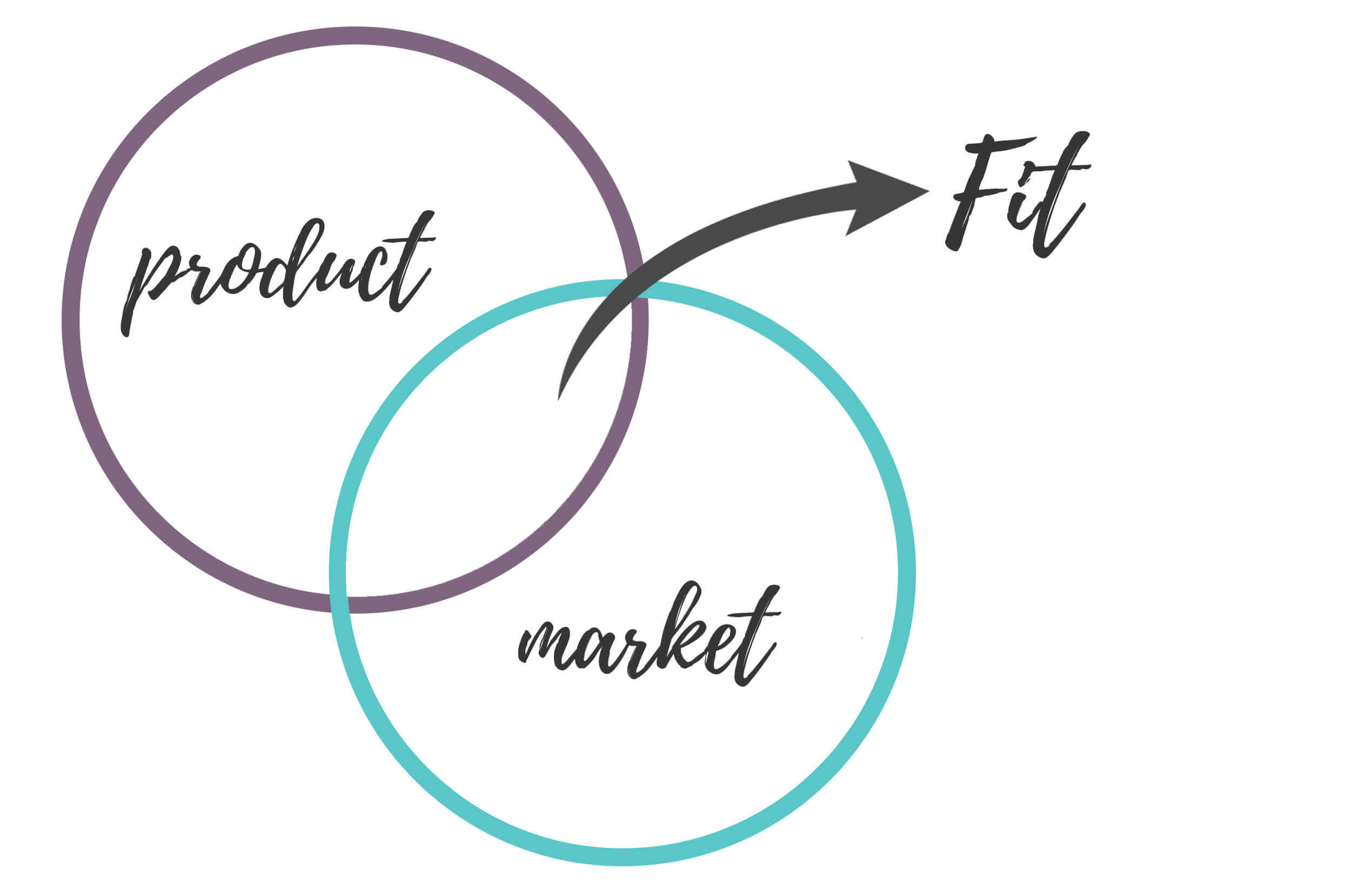How to Spot a Startup That Lacks Product Market Fit
Jan 31, 2018
Pretty well every technology startup out there these days has the importance of product-market fit battered upon them on a daily basis.
Whether it’s the advisors they meet, the blogs and videos they reference, or the success stories they try to emulate, product-market fit will undoubtedly emerge as one of the key milestones on the way to their hoped-for unicorn status.
One popular definition of product-market fit is “being in a good market with a product that can satisfy that market”.
It sounds simple, but unfortunately the true measure of product-market fit is at least partially subjective. This can lead many promising young and good-intentioned founders to mistake nearly any positive event for the indisputable proof that their company has made it.
As investors, it can sometimes be hard not to also get caught up in these founders’ positive energy, but doing so can be risky, and can spell the beginning of a road to failure.
This post is designed to help. Next time you find yourself in a coffee shop meeting a founder for the first time, as you stare into their sleep deprived eyes, listen to them tell you about how “busy” they are, and watch them creatively attempt to mask an ever-present fear of their growing burn rate - keep an ear out for these 5 tell-tale phrases that suggest their startup’s product-market fit may not actually exist (perhaps you’ve already heard some of them before).
1. “Everyone we’ve spoken to loves the idea”
While speaking to potential customers is an essential step to determining their pain points, hearing that they like an idea does not necessarily mean the proposed solution will solve an actual market need, or that they would pay the necessary price for it.
Many solutions and features can be “nice to haves” but nothing more. If a founder claims that everyone they’ve spoken to loves their idea, it can be helpful to dig deeper, and determine whether customers are actually putting their money where their mouths are. Have the people they spoken to followed up asking when the solution would be ready, or how much it will cost, or how they could buy it? Did these conversations already turn into actual sales?
Having product-market fit means moving from a great idea, or nice to have, to a place where the startup’s customers express that they definitely want to exploit the benefits of the product, and will realize tangible returns in doing so.
Often people might say that they like an idea to avoid the discomfort of the truth, or because they do indeed “like” it, but don’t really “love” it. Investors should beware the startup that is propelled only by promising conversations.
2. “Our funnel is full of big deals on the brink of closing”
Sales cycles that drag on and on can be a warning sign that, beyond closing skills, a startup lacks product-market fit.
As Marc Andreesson puts it, “you can always feel product/market fit when it’s happening. The customers are buying the product just as fast as you can make it — or usage is growing just as fast as you can add more servers. Money from customers is piling up in your company checking account. You’re hiring sales and customer support staff as fast as you can”.
The danger for startups juggling limited cash runways and an (understandable) overconfidence in their own solutions, is that they often start aggressively selling or marketing to customers - and stop listening to what those customers are actually saying - too early. The founders may blame their market for having notoriously lengthy sales cycles, however the underlying issue may actually be that their solution lacks product-market fit.
One entrepreneur who was part of a study on why startups fail, reflected that “premature scaling is putting the cart before the proverbial horse… As an entrepreneur there’s always the temptation to grow the sales team at the first sign of revenue traction, but there is always the danger that this early traction is coming from the subset of the market that are early adopters and not the actual market itself.”
3. “Nothing else in the market can do what we do”
Assuming they have fully studied the competition, a startup that claims they possess a one-of-a-kind solution may be the world’s next Unicorn… or may simply be unaware of the fact that they lack product-market fit.
In established markets, the reason for a solution not existing is more likely to be that is not something the market needs (or perhaps something that the market has already left to wither and fail before).
An interesting observation related to product-market fit, is that often it isn’t the “first mover”, but the “first to product-market fit” (or beyond that, first to “product-market scale”) that wins out in the end. Facebook wasn’t the first social network, Google wasn’t the first search engine, and Apple wasn’t the first computer company, but all demonstrated an unmatched ability to serve their market with what it needed, which definitely proved to be a superior approach to generating growth.
4. “We have downloads from all over the world”

A startup that can get users to try their product is one thing, but it’s something else to have a customer base that keeps coming back for more.
It doesn’t take much beyond a few friends at the right media outlets, a moderately sized digital advertising budget, or a clever influencer marketing campaign to gain initial traction. However, just because a few vanity metrics are high does not mean that a company has product-market fit.
Some of the real indicators of a product’s viability are things like a strong Net Promoter Score (NPS), high customer retention, and successful word-of-mouth scaling. Is the market demonstrating that they can’t get enough of this solution, or is a lot of tried-it-once software being pumped out to nowhere?
5. “We just finished development on a new set of features a potential customer requested”

One customer is not a market. Founders should be cautious when someone seemingly on the brink of committing to a sale suggests they’d like to see just one more feature, as it may just be a less confrontational way of them delaying a “no”.
According to Andreessen Horowitz, “there is no value in hardening something that customers don’t want to buy… The product doesn’t need to be great; it just has to work... If nearly everyone at the business is focused on trying to fulfill product demand instead of “sitting around” trying to dream up new feature to create demand, there is almost certainly PMF.”
- - -
Preferably, one would not seek to catch a founder mistakenly believing they’ve reached product-market fit for the purpose of publicly shaming them, but rather to aid them along their continued journey, and help them avoid a costly, painful struggle.
They say that you can always feel product-market fit when it’s happening, but for a young founder who’s never experienced it before, or for someone so close to the company that they’re caught up in the emotions of it all, it’s simply not black and white. Looking for positive indicators such as high customer retention, and some of those customers serving as the company’s own sales champions or advocates can help, and conversely so too can listening for classic phrases such as the ones we’ve listed above.
What classic founder sayings raise product-market fit red flags in your ears?


